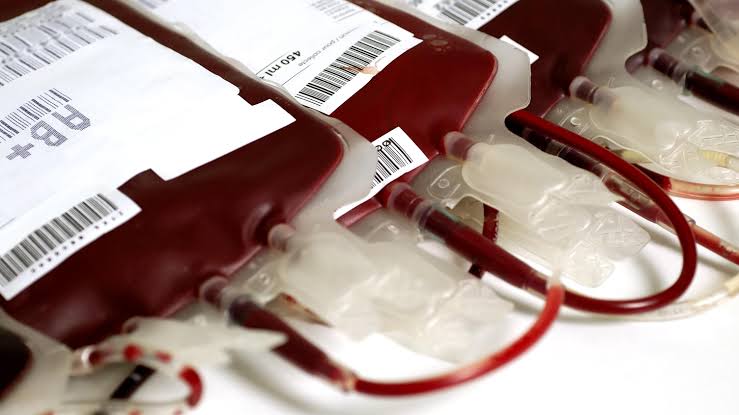Mr Kingsley Odiabara, Director, National Laboratory Manager, National Blood Transfusion Service (NBTS), says the office is strengthening relationship with hospitals to covert commercial blood donors to voluntary ones through counselling.
SEE ALSO: Okonjo-Iweala’s GAVI gets $8.8bn vaccine donation
Odiabara told the News Agency of Nigeria (NAN) on Monday in Abuja that NBTS was targeting to increase the pool of voluntary donors in the next three years to achieve blood safety.
“We are also working to strengthen our partnership with hospital facilities. We are aware that many people go to the hospital to donate as commercial and family replacement donors.
“If we strengthen relationship with the hospitals, we will convert the commercial blood donors through counselling into voluntary ones,’’ he said.
According to him, Nigerians response to blood donation has been commendable as many do so willing.
“They walk into our centre to donate blood when they are due but the number of donors is insufficiently low compare to what it should be.
“Ideally, we should be able to convert all commercial and family replacement donors to become voluntary donors.
“Until we get to that level where we have 100 per cent blood donation all coming from voluntary donors, we can’t bit our chest and say we have achieved blood safety,” the NBTS director said.
Odiabara further said that NBTS was moving into next level of component production and plasma fragmentation.
“Plasma fragmentation is very key; if we are talking about appropriate clinical use of blood, we must talk about the right component to meet patient need.
“We are scaling up advocacy and sensitisation and awareness to increase the pool of blood donors to achieve blood safety.
“We are hoping that in the next three years, even though we may not be able to achieve the World Health Organisation (WHO) set standard, we should be able to record tremendous increase,’’ he said.
He noted that WHO stipulated that at least one per cent of the population must be able to donate blood regularly to meet up with blood need of a country.
He said that Nigeria was yet to meet its blood requirement, saying“ we are yet to meet 10 per cent of our blood need.
“We have not been able to meet the national requirement based on WHO standard, we have not be able to meet the local need for blood and its products.
“We need to scale up and we are working at scaling up; we need to engage awareness on blood donation,” he said.
The director, however, thanked regular blood donors, especially the youths and urged them to donate more blood to save lives.
“We are particularly grateful to Nathan John, the highest blood donor in the country; he has donates 63 times and has been consistency, never defaulted whenever due.
“A man is requested to donate four times in a year except in case of illness or he falls short of the requirement. He has been donating for the past 15 years,’’ he said.
NBTS is a programme of the Department of Hospital Services in the Ministry of Health, charged with the responsibility of providing safe and quality blood for the nation.

